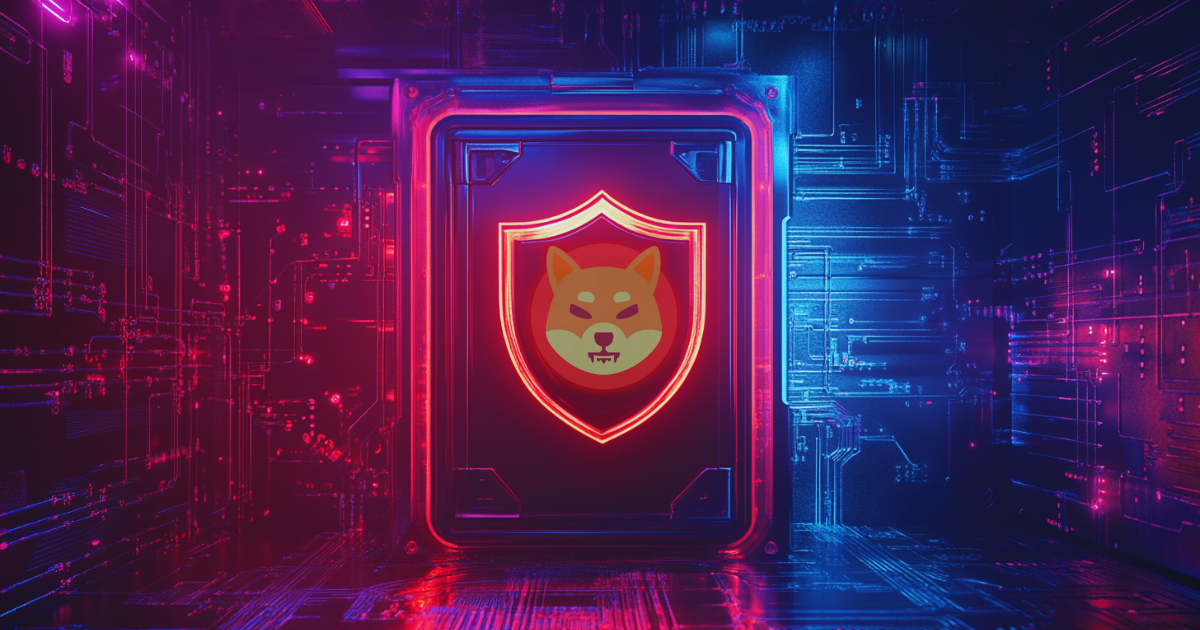
Quantum computing is getting closer to cracking the locks we’ve relied on for decades. While most are only now starting to take it seriously, Shiba Inu has been moving quietly, building Shib Identity with privacy stitched into its fabric and eyes set on the long game.
The backbone of today’s digital world — emails, bank accounts, blockchain wallets — runs on encryption. RSA, ECC, and other cryptographic methods have quietly kept data safe for decades. But the ground is shifting. Fast.
Quantum computing, once a science fiction subplot, is rapidly beсoming a real threat. These machines don’t just calculate faster — they brеak the rules entirely. Enough power, and they could tear through encryption that secures trillions in assets.
That’s no longer a fringe concern. This year, a team of Chinese scientists reportedly managed to factor small RSA keys using a 24-qubit quantum setup. It wasn’t a collapse of modern security by any stretch, but it was a signal. The storm’s not here yet — but the clouds are forming.
Major tech companies have taken notice. Apple recently launched PQ3, a new post-quantum cryptographic protocol now embedded in iMessage and upcoming iOS releases. Miсrosoft is doing the same in Windows 11, adding ML-KEM and ML-DSA — quantum-resistant algorithms designed to hold up against future attacks. IBM and Google are throwing billions into quantum hardware development, racing to outpace the threat before it fully materializes.
Related: Programmable Receipt: Ultimate Guide to Navigating the SOU NFTs
Most of the industry is still reaсting. Shiba Inu seems to have been building with this in mind from the start.
Shiba Inu’s long-term defense plan includes something most ecosystems haven’t even started thinking about: a purpose-built identity system called Shib Identity. It’s not a rebranded login flow or marketing gimmick — it’s a full-stack architecture grounded in digital sovereignty, where users hold the keys to their own privacy, data, and control.
What makes it stand out is the use of Fully Homomorphic Encryption (FHE) — a powerful cryptographic method that allows data to be processed while still encrypted. That means your identity credentials stay private at every step. They’re never exposed, not even during verification.
It’s a tough technology to pull off, but it offers a rare advantage: resilience not just against today’s threats, but the kind quantum computers could pose down the line.
Access to Shib Identity runs through Shiba Inu Treat, one of Shiba Inu’s core utility tokens. This is beyond just the gatekeeping mechanism — it anchors real cryptographic functionality in the token economy. Think of it as a privacy passport, built into the system by design.
Related: 2025: The Year of the Industrialized Heist

Alongside Shib Identity is the already-live Shib Name Service (SNS) — which replaces the usual jumble of wallet addresses with human-rеadable names like *yourname.shib. It seems like a convenience feature, but it’s part of a deeper push to reimagine how identity and control work on-chain.
Shib Name Service, one of the foundations of Shib Identity isn’t just about wallets. The team behind it has been laying groundwork for ICANN approval, which would allow *.shib names to be used as standard web domains — bridging crypto-native identities with the broader internet.
That’s not a short-term play. It’s a slow, deliberate build.

Get your onchain identity with a premium
*.shib name — from short gems to top-tier tags like
k.shib.
🔥 Shib Army Perk: 25% OFF your first *.shib
🔐 Use code: SHIBNEWS25
🕒 Valid until: Sept 30, 2025
All of this gets an extra layer of credibility through Shiba Inu’s partnership with Zama, a French cryptography company working at the bleeding edge of FHE. Zama’s tech is already considered post-quantum — which is another way of saying it’s built to survive the arrival of quantum computers, not just today’s threats.
Zama’s Confidential Blockchain Protocol launched its public testnet on July 1. It’s not a new blockchain, but a confidentiality layer that can sit on top of existing networks, keeping transaction data encrуpted end-to-end. еven node operators can’t peek under the hood.
This is where Shib Identity really starts to look less like a side project and more like a foundation. Because when quantum machines eventually start peeling back today’s encryption, it won’t be enough to patch things up after the fact. Systems will need to be built, from the start, to keep data safe — forever.

While the rest of the industry rushes to bolt on new protections, Shiba Inu has taken a slower, more layered approach. It’s designing an identity system meant to last, not patch holes. It seems that it has been spending time on less glamorous things — infrastructure, privacy, and long-term trust.
That might not get the same headlines as price pumps or celebrity partnerships, but it points to a deeper kind of seriousness—one that sees privacy and trust not as features, but as foundations. That’s not the kind of move that wins applause on Twitter (or X, whatever we’re calling it now), but it matters. Especially at a time when digital life is becoming harder to protect, and the threats aren’t just hackers anymore — they’re physics-breaking machines.
No one knows exactly when quantum computing will become a practical problem. But Shiba Inu’s design choices suggest they’re not waiting around to find out. They’re building identity sуstems as if the clock is already ticking.
Shib Identity may not be live yet, but the direction is clear. And in a landscape where most players are still racing to future-proof their systems, Shiba Inu’s early move reads less like a reaction — and more like preparation.
That’s not hype. That’s strategy.

Yona brings a decade of experience covering gaming, tech, and blockchain news. As one of the few women in crypto journalism, her mission is to demystify complex technical subjects for a wider audience. Her work blends professional insight with engaging narratives, aiming to educate and entertain.
You cannot copy content of this page